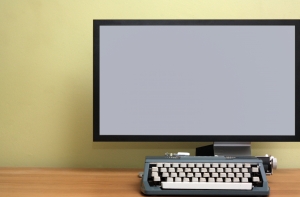

FOR a number of months we have shown how patent lawyers and other proponents of software patents have systematically distorted the truth or selectively reported so as to hide the truth. They would rather have the world believe that nothing has changed following the SCOTUS ruling on Alice v. CLS Bank. It is worse than willful ignorance; it is nefarious and dishonest.
"It is worse than willful ignorance; it is nefarious and dishonest."One lawyers' site says that "[o]nly in DDR Holdings, LLC v. Hotels.com, L.P. has the Federal Circuit found a software invention patent eligible in the face of a challenge" (this is important because CAFC is the original source of software patents and one of the most zealous courts in the world, favouring software patents almost without exception).
Another lawyers' site says that the USPTO addresses the eligibility of software patents, based on a recent forum that we mentioned last month. The lawyers say that "on January 21, 2015, the USPTO held a public forum in Alexandria, VA to receive feedback from the public regarding the 2014 Interim Guidance on Subject Matter Eligibility. Many practitioners provided accounts of their experiences regarding recent interactions with the USPTO related to subject matter eligibility rejections and recommendations for the future."
When they say "practitioners" they mean lawyers. It's mostly them, i.e. people who profit from patents, who drive this debate. Now, watch this rhetorical question. Penn Law has titled a session "Will SCOTUS rulings on software patents help or hurt innovation?"
This has nothing to do with innovation, as something called "Innovation Act" may lead people to thinking. It's about protectionism.
Do patents promote innovation at all? Depends who you ask. Lawyers, who offer no innovation at all, love to speak 'on behalf' of people who write computer programs. Consider this new article that perpetuates a myth: "another thing that grows more quickly than population is the rate of innovation, which is partly measured by how many patents are granted to people in that city."
No, not really. Patents granted are a function of paperwork, not innovation. This is the sort of shallow rhetoric we expect to hear from patent lawyers and their rich clients. Their goal is to repress competition, thus preventing many good ideas from ever being implemented.
From the Penn event's introduction: "An event hosted by Penn Law and the Penn Center for Innovation asks: “Are Software Patents Critical to Innovation?” A panel of experts will weigh in."
How many on this "panel of experts" will actually be programmers? This is a Penn Law event, so expect "law" professionals to reign.
Martin Goetz, one of the most vocal proponents of software patents, is meanwhile distorting facts in a pro-software patents site, bizarrely enough claiming that "Alice v. CLS Bank is a Victory for Software Patents". That's as inane as saying that a ruling in favour of police brutality helps victims of police. It just makes no sense at all. It's not just a "man bites dog"-type sensationalism but a misleading statement.
In the absence of clarity in the press on this subject, as opposed to propaganda from patent lawyer, we may continue to see complete nonsense (obviously abstract) ideas from Apple hailed as genius patents [1, 2]. Dell in the mean time is pushing software patents into India, which in principle does not allow these.
To quote a new article from Economic Times (of India), "Dell is looking towards India to transform its research and development capabilities that have lagged rivals for years. The US technology company is strengthening its engineering team here and increasing the number of patent applications filed from India — which, a senior executive said, has already become the largest contributor to software patents for Dell — as the local unit gets a large piece of investment that chief executive Michael Dell has promised for its R&D push."
Someone should tell Dell that software patents are not legal in India and increasingly they are not accepted in the US, either. Then again, now that Dell is partly controlled by Microsoft we can expect this kind of abusive behaviour, setting aside Dell's lowering of salaries by driving jobs to Asia (Dell is definitely not going to offer them the same wages it offers in North American and Europe).
The bottom line is, the debate, the law, the media coverage etc. continue to be driven by large corporations. They are foisting myths and misleading statements onto us to make us complacent or at best apathetic if not supportive. ⬆